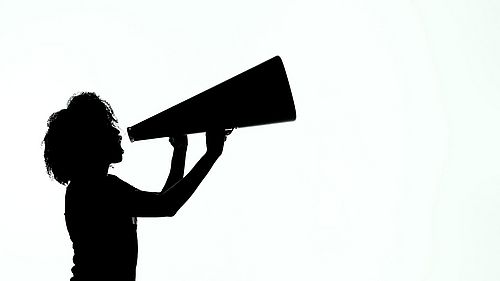News
Militär übernimmt Macht in Zimbabwe
Hintergründe und Medienkontakte
Am 15. November 2017 haben Teile der Armee die Macht in Zimbabwe übernommen. Präsident Robert Mugabe wurde nicht abgesetzt aber unter Hausarrest gestellt. Die Ereignisse stehen in Zusammenhang mit einem Machtkampf innerhalb der Regierungspartei ZANU-PF zwischen dem wenige Tage zuvor entlassenen Vizepräsidenten Emmerson Mnangagwa und Präsidentengattin Grace Mugabe. Es wird die Installation einer Übergangsregierung erwartet.
Experten für Medienanfragen
Folgende Experten stehen für Medienanfragen zur aktuellen Situation und zu den Hintergründen des Machtkampfs in Zimbabwe zur Verfügung:
Barbara Müller, Ethnologin und Zimbabwe-Expertin mit langjährigen Beziehungen zum Land seit der Unabhängigkeit, Ko-Präsidentin Fonds für Entwicklung und Partnerschaft in Afrika (FEPA) und Vorstandsmitglied Afrika Komitee:
ba.muellerfrei-at-gmail.com | +41 79 601 74 17
Elísio Macamo, Professor für Soziologie und Leiter des Zentrums für Afrikastudien Basel, Forschungsgebiet politische Kultur in Afrika:
elisio.macamo-at-unibas.ch | +41 61 207 34 85
Weitere Experten in und aus Zimbabwe kann Ihnen die Geschäftsstelle des Zentrums für Afrikastudien vermitteln.
Hintergrundartikel und Kommentare
Piers Pigou, Experte für das südliche Afrika bei der International Crisis Group, erklärt Hintergründe und mögliche Absichten hinter der Machtübernahme durch das Militär und die Reaktionen in Zimbabwe und in der Region:
“… This is a very peculiar kind of coup. Effectively there has been a military takeover, but the army has not declared martial law, the suspension of the constitution, or the deposition of the country’s head of state. The military and those such as War Veterans who supported a robust pushback following Vice President Mnangagwa’s dismissal have been at pains to argue that they are not pushing for a coup. Outside powers are also at pains not to use the word “coup” in relation to current events. … There may well be sympathy for the military’s intervention from several domestic and regional quarters, but it sets dangerous anti-democratic precedent with major implications for Zimbabwe and beyond. How much longer can this overt military intervention avoid being labelled a coup d’état? While the army’s intentions may be couched in constitutional language, the democratic credentials of those pursuing this course of action are also in doubt. Just as importantly, will the military, in conjunction with ZANU-PF and the government, be able to cobble together a plausible veneer of legality around this intervention? Will the opposition and civil society take a clear stance on this? Will President Mugabe, whose controversial election in 2013 was widely accepted, be willing and able to put his imprimatur on any new suggested plan of action?”
https://www.crisisgroup.org/africa/southern-africa/zimbabwe/zimbabwes-very-peculiar-coup
Farai Maguwu, Aktivist und Gründer des Centre for Natural Resource Governance, stellt in einem Kommentar zur gegenwärtigen Situation klar, dass die Machtübernahme des Militärs nichts einer Öffnung oder Demokratisierung zu tun habe, sondern im Gegenteil das Ziel hat, die Macht der ZANU PF zu stabilisieren. In eine erwartete Übergangsregierung setzt er wenig Hoffnung:
“… There is virtually no room for a transitional authority at the moment. The broader purpose of the military action is not to ensure a transition to democracy but rather to preserve the narrow interests of the military chefs, war veterans and the ZANU PF faction led by axed ZANU PF Vice President Emmerson Mnangagwa. The generality of the people of Zimbabwe are not part of the matrix. There is a huge possibility the Movement for Democratic Change will be roped in to form a coalition government with Tsvangirai assuming the position of Prime Minister. This will be a repetition of the 2009-2013 Inclusive government where the MDCT, after over 400 of its supporters were murdered following Tsvangirai’s shock victory over Mugabe in the March general election, was invited to play a subservient role to Mugabe and ZANU PF in the inclusive government. … The opposition parties that shall be invited to share the spoils of the coup will be very weak, much weaker than the MDCT during the Inclusive government. Unlike in 2008 where the MDCT joined government on the back of a powerful electoral performance, this time they are joining the Lacoste team in government as a weak, bankrupt and defeated opposition.
Chipo Dendere ist Politikwissenschaftlerin an der und befasst sich mit Themen wie Demokratisierung, Migration und neue Technologien. Auf dem Internetportal ‘Africa is a Country’ zeigt sie sich vorsichtig hoffnungsvoll, was eine Übergansregierung betrifft.,
“The First Lady Grace Mugabe rose from the shadows of just another political spouse to a powerful voice in the party. Her public denunciations of officials in the ruling ZANU-PF party have in recent years led to the demotion of several of those with whom she disagrees. … Ideally, a coup is never the best solution. The good news is that the former Vice President Emmerson Mnangagwa has not been reinstalled. This suggests to some extent that the military is reaching out to other stake holders. I would predict that Joice Mujuru and Morgan Tsvangirai have been called in to the discussions. An ideal outcome is one in which people from different political factions come together to form a unity transitional government.”
http://africasacountry.com/2017/11/who-benefits-from-the-military-coup-in-zimbabwe/

